LANGUAGE
At Eastwards Consortium, our focus is primarily on educating and developing the next generation of our society. This section showcases off our ‘Wellcomm Primary’ activity set, and below you will find a set of tabs which depict these tasks further. If you find children are struggling with a task or, on the other hand, passing with flying colours, indications and suggestions are proposed in each section to ensure you keep all children challenged and on-task as much as possible.
To view the various parts of each activity, simply click on the respective tab and watch it magically appear!
SARCASM
MAIN ACTIVITY
1. While you are watching a family film at home, discuss when a character is being sarcastic. Zootopia has some great examples https://www.youtube.com/watch?v=HHKwnUa3txo
2. Ask your child why Nick calls the sloth ‘Flash’ (because he is so slow).
3. Look out for other examples of characters being sarcastic. The character may:
- Talk at a slower rate
- Emphasise specific words
- Facial expressions may differ to what they say
- Roll their eyes
- Raise their eyebrows
- Shrug their shoulders
4. Use sarcastic phrases daily. For example, walk into a messy room and say ‘Thank you for tidying up!’
HOW CAN WE MAKE THIS ACTIVITY MORE CHALLENGING?
– Ask your child if they can think of their own sarcastic phrases.
HOW CAN WE MAKE THIS ACTIVITY EASIER?
– Encourage your child to ask if they are unsure if someone is being sarcastic.
SELECT KEY INFORMATION FROM A COMPLEX SPOKEN PARAGRAPH
MAIN ACTIVITY
1. Ask your child to choose a non-fiction book from the library. Try to link this to the child’s topic at school, the school website should have the information if your child doesn’t remember.
2. Read one page from the book to yourself and pick out one or two pieces of information that your child needs to listen out for.
3. Then ask your child questions linked to this information, for example, ‘Name three things that reflect light’ or ‘How are fossils made?’
4. Read the page out and then repeat the questions.
5. Discuss the answers together.
6. If your child gets the answer wrong, model the correct answer first. Then reread and ask the question again.
HOW CAN WE MAKE THIS ACTIVITY MORE CHALLENGING?
– Read a longer section from the book.
– Ask an extra question.
– Only ask the questions when you finished reading the page.
HOW CAN WE MAKE THIS ACTIVITY EASIER?
– Your child can write key words or draw simple pictures to help remind them what they are listening out for.
– Repeat what you are listening out for.
– Whilst reading, pause or exaggerate your tone when you get to the key information.
– Ask the child to listen out for a specific word linked to the topic e.g. sedimentary rock
– Read a shorter section of text.
JUSTIFY AN OPINION
MAIN ACTIVITY
1. Teach and model to your child that our opinions are not the same as facts. Giving them the language to use such as ‘I think… I feel… I believe’will help them give their opinion without insinuating it is the only truth.
2. In response to others’ opinions they can use the statements ‘I can see you think that…. I understand you believe…. I recognise you feel differently…’
3. Asking ‘Would you rather…?’ questions is a fun way of showing a difference of opinion is healthy and welcomed. ‘Would you rather have a pet dragon or a pet dinosaur?’ The whole family can join in, don’t forget to model how to justify your view. For example, ‘I think a pet dragon would be better because they can breathe fire and light our bbq quickly!’
HOW CAN WE MAKE THIS ACTIVITY MORE CHALLENGING?
– Ask more abstract questions that require a longer answer. For example, ‘Should we walk and cycle more instead of taking the car?’
HOW CAN WE MAKE THIS ACTIVITY EASIER?
– Give your child a choice. For example, would a dragon be better because it can breathe fire, or would dinosaur be better because it is very tall?
– Give your opinion and discuss whether your child agrees with you.
MORE INFORMATION
UNDERSTAND LANGUAGE RELATED TO CERTAINTY
MAIN ACTIVITY
1. On a blank piece of piece of paper, draw a line nearly the width of the paper. Write ‘unlikely’ on the end of the line on the left and ‘likely’ at the end of the line on the right:
—————————————————————————————————————————————————————-
Unlikely Likely
2. Write the following words on slips of paper: certainly, definitely, probably, possibly, potentially, usually, occasionally. Discuss where on the line each word will go and why. Discuss it with other members of the family, does everyone agree?
3. Use these words when asking your child questions. For example, ‘Will we have to go to school tomorrow?’ ‘Yes, we definitely have to go to school tomorrow!’ ‘Will you have cheese sandwiches for lunch?’ ‘I will probably have cheese sandwiches.’ ‘I usually have cheese sandwiches’.
4. You will need to model lots of the answers at first until your child is more confident using the vocabulary
HOW CAN WE MAKE THIS ACTIVITY MORE CHALLENGING?
– Use the vocabulary to compare people’s choices. For example, I am definitely going swimming tomorrow and my brother may possibly join me.’
HOW CAN WE MAKE THIS ACTIVITY EASIER?
– Start with less words.
– Choose the easiest words first, like certainly and definitely, to place on the line.
– Give your child a choice of where the words should go.
– Place the words yourself and ask if your child agrees with you.

